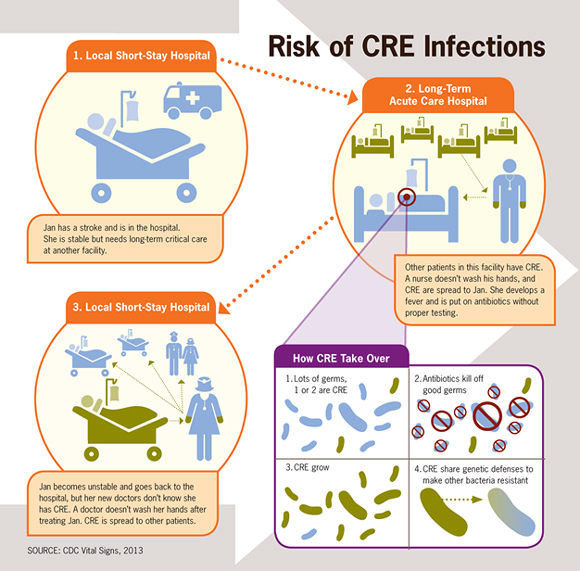A presence of a highly antibiotic resistant microorganism in patients in a Brazilian intensive care unit has prompted the isolation of 30 beds, according to Brazil media (computer translated).

The Hospital de Clinicas, Federal University of Uberlândia (HCU-UFU), in the Triangulo Mineiro detected 6 patients on the ward with the carbapenem-resistant Enterobacteriaceae (CRE), Klebsiella pneumoniae carbapenemase (KPC).
Under the direction of the HCU, the 30 ICU beds are prevented from receiving new patients. “As their areas are unoccupied, will be submitted to a disinfection process, and will receive new patients,” the hospital said in a statement.
The institution believes that the full disinfection process, involving all areas of ICU end in about four weeks. The health status of patients who are infected has not been informed and whether there have been deaths due to contamination.
CRE are a family of germs that are difficult to treat because they have high levels of resistance to antibiotics. Klebsiella species and Escherichia coli (E. coli) are examples of Enterobacteriaceae, a normal part of the human gut bacteria, that can become carbapenem-resistant.
KPC is an enzyme that breaks down carbapenems and make them ineffective. Infections with these germs are very difficult to treat, and can be deadly—one report cites they can contribute to death in up to 50% of patients who become infected.
Related news:
CRE bacteria linked to seven infections, 2 deaths at UCLA
Brazil reports 200,000 dengue cases in past month, Mexico chikungunya cases top 2,000
VRSA reported in Delaware patient, 14th case ever reported in US
Paper suggests NDM-1 started in India



2 thoughts on “Brazil: Klebsiella pneumoniae carbapenemase prompts closing of hospital ICU”